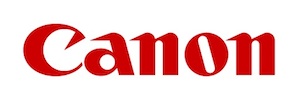The Scariest Phrase Frank Has Ever Heard
Frank bemoans the loss of ebook access by Microsoft users who were told that “The books will stop working.”
 Official camera partner of WhatTheyThink and the drupa daily. Video from drupa 2024
Official camera partner of WhatTheyThink and the drupa daily. Video from drupa 2024
Video Center
- Questions to ask about inkjet for corrugated packaging
- Can Chinese OEMs challenge Western manufacturers?
- The #1 Question When Selling Inkjet
- Integrator perspective on Konica Minolta printheads
- Surfing the Waves of Inkjet
- Kyocera Nixka talks inkjet integration trends
- B2B Customer Tours
- Keeping Inkjet Tickled Pink
© 2024 WhatTheyThink. All Rights Reserved.















Discussion
By Laurens Leurs on Jul 26, 2019
I went through the same experience when Palm closed their ereader store many years ago. That's why all the ebooks I buy get their DRM stripped off and then they are saved in the open ePub format. That way I can still enjoy reading books I bought over a decade ago. Installing the conversion software, adding the decoders and doing all that work is admittedly not for everyone. Printed books are more convenient but if my house ever burns down, all the printed books will be gone while the two offsite backups of all my ebooks will still be there.
By William Ray on Jul 26, 2019
Get everything into ePub. Free tools are available to do a drag and drop conversion into open formats.
I keep everything on two NAS drives, a private cloud and a UNIX server.
This is not a "library of Alexandria" problem as tagging formats -- XML derivatives -- are easily converted to different tags via lookup tables.
BTW, never buy PDF books as they are a digital rock in the stream.
Tying content to a proprietary device is illogical -- from the user point of view -- and represents a business decision on the part of the vendor that should be punished economically. You don't buy printing or paper but, rather, content.
By Hal Hinderliter on Jul 26, 2019
Love ya Uncle Frank, but you're wrong to say that "e-books are the problem." DRM is the problem here, just as you've identified. People who have a broad range of disabilities (blindness, low vision, dyslexia, etc.) are best served by EPUB books, which is based on a format first developed by advocates for the blind. PDFs are not the answer, due to a long list of accessibility issues. On the bright side, it's nice to know that Bill Ray continues to always be right :)
By greg Patt on Jul 26, 2019
Soon "reading" will be outdated.
Direct download to your brain.
I look forward to it.
By William Ray on Jul 29, 2019
Ironically, Hal, Microsoft pushed an XML variant years ago. Not just for ebooks but something else -- Word.
Using a tagged data file makes user data more robust to the software version changes that plagued Microsoft at the time.